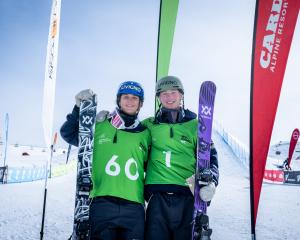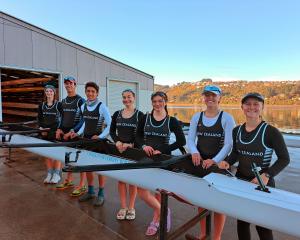It is not a question of why people are turning away, either - the reasons are as varied as the list is long.
The pertinent question is what happens now and it is a question with which the Dunedin City Council is grappling.
In an email, DCC recreation planning officer Andrew Lonie said the council was investigating whether it was providing the ''right mix of facilities in the right locations''.
From there, the DCC will develop some strategies that it hopes will accurately reflect the community's needs.
''Basically, we are at a very early stage and it is quite a lengthy process,'' he said when contacted for further comment.
''We are confirming how that will play out and are doing our internal planning processes for it, so it is not really appropriate for me to comment publicly.''
Here is what we know about the sporting landscape - it is constantly evolving.
No surprises there. But perhaps the most striking trend has been the drift away from organised sport to more casual activities.
In the past 25 years, there has been a steady decline in the numbers of people participating in traditional sports such as cricket, rugby and netball.
A quick look at the sports draws section in the Otago Daily Times from 1989 highlights just how much our sporting habits have changed.
There are 13 fewer senior rugby teams, softball has fallen from 42 senior teams to just 17, netball has dropped from 235 to 151, and cricket and hockey have also taken big hits.
Lonie is well aware of the issues. He acknowledged there had been a shift to more casual or informal activities.
There had been growth ''in outdoor recreation such as cycling, running, fishing, tramping, hunting and kayaking'', he wrote.
Pilates, yoga and aerobics had also increased and ''locally, there is demand for dance space''.
''These trends have some effect on the demand for facilities and, where these are managed by the DCC, we make every effort to be flexible and accommodate this changing demand.
''There is a whole raft of issues that our strategy will be responding to.''
Asked if sports such as cricket, which is withering at its grass roots, were at risk of not receiving the same level of support in the future, Lonie proved tight-lipped.
''Again, I can't comment on that. It just comes back to that earlier answer. We are only at the very early stages of developing a strategy and any associated action plans.''
The DCC spent just under $5 million during the 2013-14 term making sure the community had access to sporting facilities, and a 2014 residents' opinion survey suggests that money was well spent.
The percentage of respondents who were either very satisfied or satisfied with the major sporting facilities in the city were as follows: DCC pools 83%, winter sports fields 74%, summer sports fields 81%, Dunedin Ice Stadium 71%, Edgar Centre 84% and Forsyth Barr Stadium 78%.












